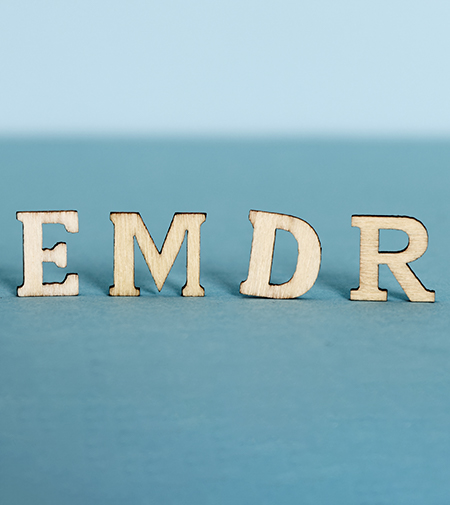 Terrible things have happened.
Terrible things have happened.
Maybe it was a car accident, you are a survivor of sexual and/or physical abuse as a child or adult, or it was something you saw happen to others. No matter how often you tell your story, it never seems to bring relief.
The images haunt you when you least expect them, resulting from either a sound you heard while spending time with your loved ones or something that popped into your head while lying on a pillow to rest. Whatever the circumstances, the thought brought you back to that place of fear.
The people around you feel concerned, which brings shame and embarrassment because you have no control over yourself. Those feelings lead to hopelessness as your life moves on without you being present.
You put your life in neutral and wade through as a narrator, trying to hide the parts of you that you are afraid to show others.
Nothing seems to work.
“I don’t want people to find me out that I am flawed and bad.” You have talked about the trauma and tried to process it through various forms of talk therapy. Thought stopping and reframing do not seem to cut it. Robotically wading through the evidence to change your worldviews is irritating and frustrating.
Logically, you know that you have worth, and things are different, but you can’t shake this feeling that comes in like a tidal wave.
There’s a disconnect between your brain and what you feel; what you feel always wins.
 EMDR offers a key that could change your life for the better.
EMDR offers a key that could change your life for the better.
EMDR targets the feelings, negative beliefs, memories, and even body sensations that can linger after we’ve experienced something stressful. EMDR helps your brain heal naturally, giving you a sense of relief that you can feel.
Sometimes we process big traumas (big T’s) in our life. And sometimes, we process things like when our teacher told us to stop asking “stupid questions,” a childhood friend made fun of our clothes, or when our parents said to us that we were the “responsible” child (little t’s).
These things can become stuffed and stuck in a fragmented way in our brains, locking out the other parts of our brain to make sense of it, and we don’t know why. We do know that EMDR can help and create lasting relief.
Find inner peace and feel more connected to yourself and others.
Many issues are hard to process, keeping us in shame, fear, and guilt. Abandonment, abuse, and childhood emotional neglect can stay with us in adulthood. Some who experience trauma from war, accidents, and other stressful life events may find it hard to shake those traumatic memories, causing PTSD or trauma-related symptoms.
That stressful or traumatic event may lead to anxiety, depression, panic attacks, phobias, sleep issues, and performance anxiety. Loss and grief may persist, making it hard to move forward. Healing from physical, sexual, or emotional abuse are situations that make it difficult to have relationships.
EMDR helps you free yourself from what your adverse experiences have taught you. In EMDR therapy, we’ll look at some of the negative beliefs your experiences have taught you. You may think, “Something is wrong with me, I am a failure, or I don’t have control of my life.”
EMDR can help your mind let go of these beliefs to make room for the fact that you are enough, can find peace, and can move forward and away from the terrible things that keep you stuck. Your beliefs can move to positive statements such as “I am in control, am powerful, I survived, or the painful memories feel less disturbing.”
 What is EMDR therapy?
What is EMDR therapy?
Eye Movement Desensitization and Reprocessing (EMDR) is a modality based on evidence from extensive research. This therapeutic approach has gained popularity and proven effective in helping people heal from past trauma and stressful experiences that become stuck in a never-ending loop in the brain.
Through bilateral stimulation (both sides) of the brain, EMDR emphasizes recalling that traumatic or stressful situation while activating both sides through tapping. This process is like what we experience during REM (Rapid Eye Movement) sleep when our eyes move back and forth as the brain helps process and sort information.
EMDR emphasizes recalling those challenging memories while staying grounded in the present. By facing those memories, the individual can reprocess them in a manner that no longer results in them, causing one to relive the experience.
In short, you learn to store those events as something from the past and not the present – thus relieving the stresses of anxiety and trauma and allowing us to gain a balanced view of our surroundings.
EMDR could be for you.
EMDR therapy helps children and adults seeking treatment for a variety of issues. Therapists use EMDR to address various challenges, including anxiety, phobias, panic disorder, chronic illness, depression, eating disorders, grief, performance anxiety, C-PTSD, PTSD, and other related trauma and stress-related disorders, sexual assault, and abuse.
I use a modified form of EMDR, considered gentler in my practice. This method is effective with individuals who have tried EMDR in the past.
I am happy to be on your journey and look forward to exploring EMDR treatment with you.
If you want to learn more about using EMDR treatment in your therapeutic journey, please get in touch with me to schedule your free 15-minute consultation.

